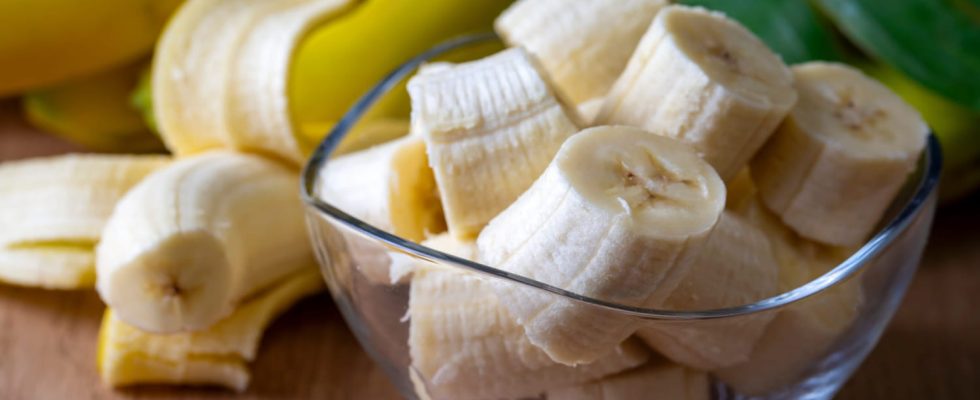It is a fruit often presented as “comfort” for the intestinal sphere. Our dietician explains to us what it really is.
Raw, in pastries to replace sugars and fats, in smoothies… The banana is a fruit that is easily eaten everywhere, all day and what’s more “freezes very well” underlines dietician Myriam Moussier. Appreciated for its tender and sweet flesh, it is sometimes feared in weight loss diets (it is one of the sweetest fruits with 20 grams of carbohydrates per 100 grams while the average fruit is 12 grams) but “If you eat a medium sized banana you won’t have more carbohydrates than in an apple” reassures Myriam Moussier. And bananas have many health benefits.
It contributes to the maintenance of our tissues, including the skin, joints, vessels and even bones. “It contains copper which promotes the absorption of iron and which is necessary for the production of collagen” explains our expert. The fruit also has a high level of vitamin C, one of the most powerful antioxidants in our body which protects against cell aging. Its magnesium will also promote bone density by improving calcium absorption. “Bananas even contain manganese, an essential element that helps in the regeneration of bone tissue.”
Concentrated energy, “I recommend eating a banana an hour before doing sports. The fibers contained in bananas allow the sugars they contain to be released gradually, making it possible to accompany the sports session. It can also be effective in recovery. The nutritionist also advises eating a banana at the end of the day for stressed or anxious people: “Bananas are rich in tryptophans, amino acids that are precursors of serotonin, the hormone that regulates moods. Consumed as a late afternoon snack, the serotonin in the banana will even be transformed in the evening into melatonin, the sleep hormone. Perfect for people who feel anxious after dark.”
It is also said to be good for the intestinal tract. It is also one of the rare foods recommended in cases of gastroenteritis. “Bananas are actually good for the intestines” confirms the dietitian. This benefit comes from its richness in pectins, soluble fibers which transform into gel once they arrive in the intestines. This gel increases the volume of stools and promotes their movement, which helps to “regulate constipation” explains Myriam Moussier. At the same time, these pectins have the ability to retain water thus “Bananas are effective in cases of diarrhea because they help slow down transit.” Finally, pectins are probiotics which the bacteria present in the intestines will feed on, guaranteeing better intestinal health in the event of illness.
Thanks to Myriam Moussier, dietitian and author of the book “Ma cuisine en balance” published by Flammarion.
